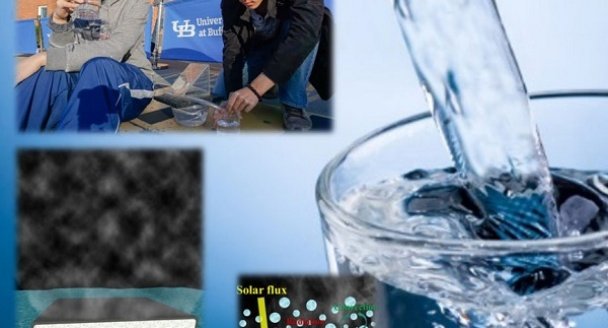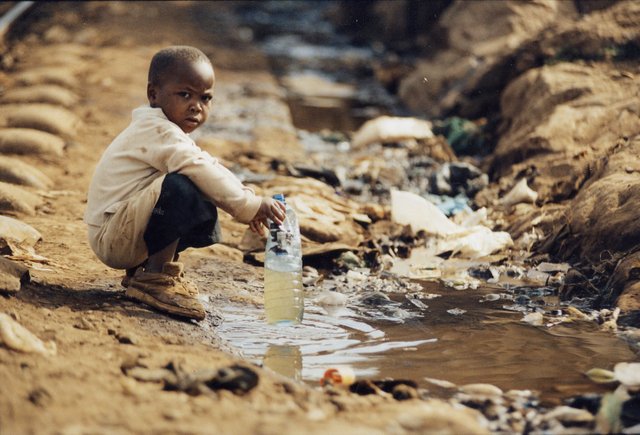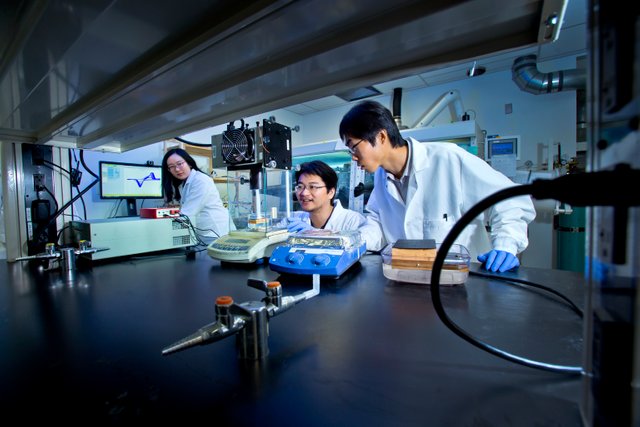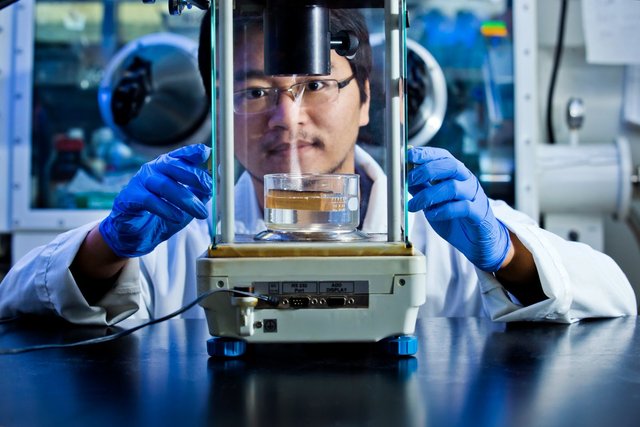Solar Energy: A Solution to Water Scarcity Using Solar-powered Devices Made of Wood
I have been talking about the usefulness of Solar Energy in series for some weeks now. You can check out Solar Energy: A Solution to Epileptic Power Supply and Solar Energy: Decentralising Power Distribution.

Today, I'll be taking about how Solar Energy and a block of wood can be used in the purification of water. The sun rays and block of wood is the primary devices that will be needed for this process. The solar energy will be needed to heat the water while in the block of wood. The size of the wood does not need to be very large.

Water scarcity is a common problem in some parts of the world (primary the underdeveloped nations). It is one thing to have water and another to have clean water. Some Engineers from the University of Maryland have come with a paper like solution to this challenge. The process involves the use of solar steam generation techniques. This technique is very effective, easy to be obtained, capable to be broken down into smaller parts by natural processes and environmental friendly.

Research by the UMD team was inspired by the natural process by which water moves from the root of trees to the leaves. This made the team to research more and discovered that there are ways that water can be purified by passing it through wood. This process makes the water safe for use. Heat will be required from the Solar Energy, to heat the water till in boils while in the medium.
Over a billion person in the world fund it difficult to get suitable water for drinking. This makes water scarcity a problem that requires urgency.
Cost and manufacturing are key challenges in using the solar-steam technology for seawater desalination and for the first time, wood-based structures can potentially provide solutions. - Liangbing Hu, associate professor of material science, a member of the University of Maryland Energy Research Center and the Maryland NanoCenter.
Liangbing Hu is an individual interested in making the devices needed for purifying water more affordable to many persons. Hu's team is combining with other teams in order to make these devices easy to use and cheap for people to be able to buy it.

The research team is thinking of a way to make the surfaces of the wood darkened, while the water passes through while passing through the permeable wood structure.
This process can be illustrated by pouring water in a bowl under the rays of the sun. A small block of wood 2 x 2 (inch) can be placed at the top of the water as it floats. The side of the block facing the sun can be darkened to grab the rays coming from the sun. As the heat of the sun reaches the wood, the water is absorbed into the wood. The darkened side of the wood that is hot then evaporates the water, so it has to be processed to change from gas to liquid and allowed to cool off. The impurities cannot pass through the wood so they are left at the bottom of the bowl.
There are different designs used to coat the wood and heat the water. One method is to use carbon nanotubes to in heating one side, while the other is to use metal nanoparticles. The only hindrance to the use of either method is that it is quite expensive to produce.
The method used by the team is a very different one, the method involves burning the side of the wood to create a dark surface. This method was tried by the team.
The success of the team was measured using the same method used in solar cells effectiveness. The efficiency of the solar steam generation tools used was around 87%. Compared with other methods mentioned above, it is the cheapest to produce. This will be good news to countries that are experiencing water scarcity. Advancing technology continues to help everyone.
Thanks for reading...
References:

Thats an awsome post solar energy is really going to change a lot of things atleats the northern states in Nigerian will benefit from this solar enery as a means to end their water scarcity
Nice initiative especially for developing countries, however the question is if the government will be open to such.
Interesting development but i can imagine though the efficiency is relatively high, the production rate may not actually be optimal......for example, before boiling is achieved alot of heat energy would be required and that would come at a slow rate.....also how is the heat energy stopped from escaping to the environment during this period?
I would also recommend if maybe a means of increasing the pressure of the water could be incorporated to reduce the required temperature needed for boiling which would in turn reduce the energy required......ofcourse all this is speculation, i really like this idea.
That is a very interesting question. Maybe I'll do another detailed post on how the process works. Thanks for reading.
Upvoted nice post keep it up
Nice discovery bro.
Keep the good work going
Thanks for the post i found it really interesting.
great post! It's very important and interesting.
So many ways ! I am glad you are seeking it and living it !